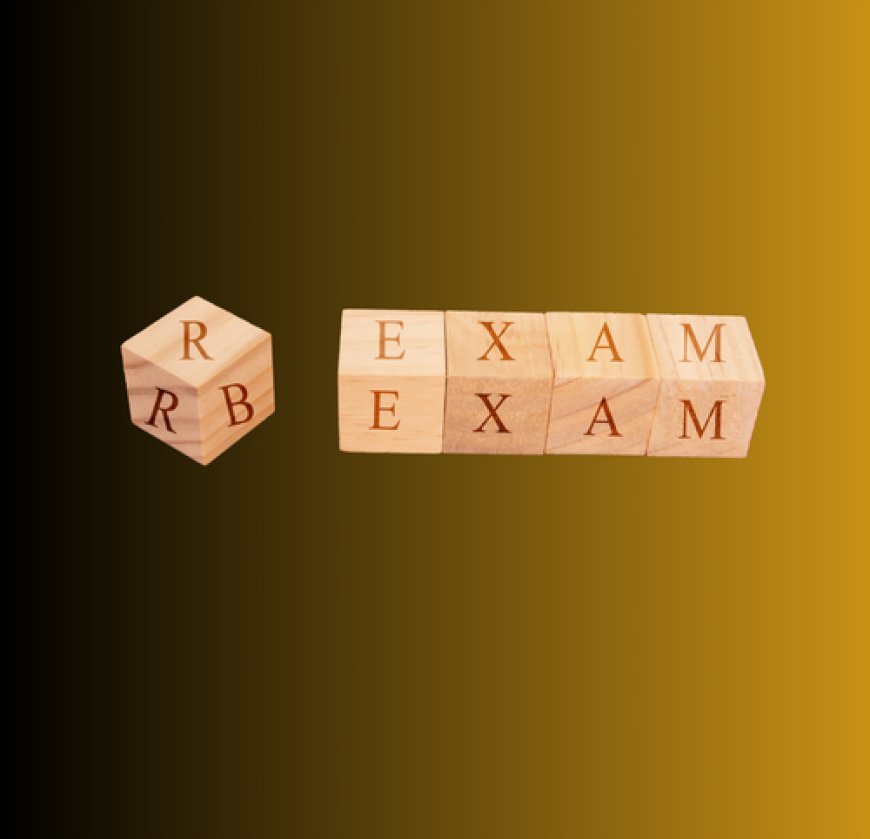About RRB Exams

The Railway Recruitment Board (RRB) exams are conducted by the Indian Railways to recruit candidates for various technical and non-technical positions within the Indian Railways. These exams offer employment opportunities in different departments, such as engineering, clerical, and safety categories, across the railway network.
Types of RRB Exams:
1. RRB NTPC (Non-Technical Popular Categories):
o Eligibility: Candidates with a minimum qualification of 12th pass or graduate degree, depending on the post.
o Posts: Traffic Assistant, Goods Guard, Junior Clerk, Commercial Apprentice, and more.
o Exam Pattern:
§ Prelims (CBT 1)
§ Mains (CBT 2)
§ Typing Skill Test (for some posts)
§ Document Verification
o Syllabus:
§ Mathematics
§ General Intelligence and Reasoning
§ General Awareness
o Selection Process: Computer-based tests, skill tests (for certain posts), and document verification.
2. RRB Group D (Level 1 Posts):
o Eligibility: Minimum qualification of 10th pass or ITI.
o Posts: Track Maintainer, Assistant Pointsman, Helpers, and other operational-level positions.
o Exam Pattern:
§ Single-stage Computer-based Test (CBT)
§ Physical Efficiency Test (PET)
§ Document Verification
o Syllabus:
§ Mathematics
§ General Intelligence and Reasoning
§ General Science
§ General Awareness and Current Affairs
o Selection Process: Computer-based test, physical tests, and document verification.
3. RRB JE (Junior Engineer):
o Eligibility: Diploma/Degree in Engineering (specific to the post).
o Posts: Junior Engineer (JE), Junior Engineer (Information Technology), Depot Material Superintendent (DMS), Chemical and Metallurgical Assistant (CMA).
o Exam Pattern:
§ Stage 1: CBT (General Science, General Intelligence, Mathematics, General Awareness)
§ Stage 2: CBT (Technical Abilities, General Science, General Intelligence, Mathematics)
§ Document Verification
o Syllabus: Engineering-related subjects for technical abilities, in addition to reasoning, general awareness, and mathematics.
o Selection Process: Computer-based tests followed by document verification.
4. RRB ALP (Assistant Loco Pilot) and Technician:
o Eligibility: ITI certificate or diploma in relevant trades.
o Posts: Assistant Loco Pilot, Technician.
o Exam Pattern:
§ Stage 1: CBT (Mathematics, Reasoning, General Awareness)
§ Stage 2: CBT (Part A: Same as Stage 1, Part B: Trade-specific)
§ Computer-Based Aptitude Test (for ALP)
§ Document Verification
o Syllabus: General awareness, mathematics, reasoning, and trade-specific technical knowledge.
o Selection Process: Computer-based tests and aptitude tests for ALP, along with document verification.
5. RRB Paramedical Staff:
o Eligibility: Medical qualification depending on the post.
o Posts: Staff Nurse, Health Inspector, Pharmacist, ECG Technician, Lab Assistant, and more.
o Exam Pattern:
§ Single-stage CBT
§ Document Verification
o Syllabus: Professional knowledge, general awareness, general intelligence, and reasoning.
o Selection Process: CBT and document verification.
Common Features of RRB Exams:
- Mode of Examination: Online (Computer-Based Test).
- Age Limit: Typically between 18 to 33 years, but varies by category and post.
- Selection Process: Generally, includes CBT, skill/physical tests (for certain positions), and document verification.
- Negative Marking: 1/3rd mark is deducted for every incorrect answer in most exams.
Preparation Strategy:
- Mathematics: Focus on quantitative aptitude, arithmetic, algebra, geometry, and data interpretation.
- General Intelligence & Reasoning: Study logical reasoning, analytical skills, puzzles, and problem-solving.
- General Awareness: Keep updated on current affairs, general knowledge, and Indian Railways' structure.
- Technical Knowledge: For technical posts like JE and ALP, prepare based on engineering or trade subjects.
RRB exams are highly competitive, with millions of candidates applying for a limited number of posts each year, so structured preparation and regular practice are key to success.


 Achievers Team
Achievers Team 





